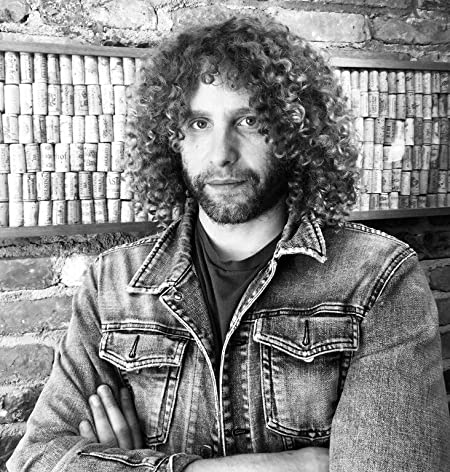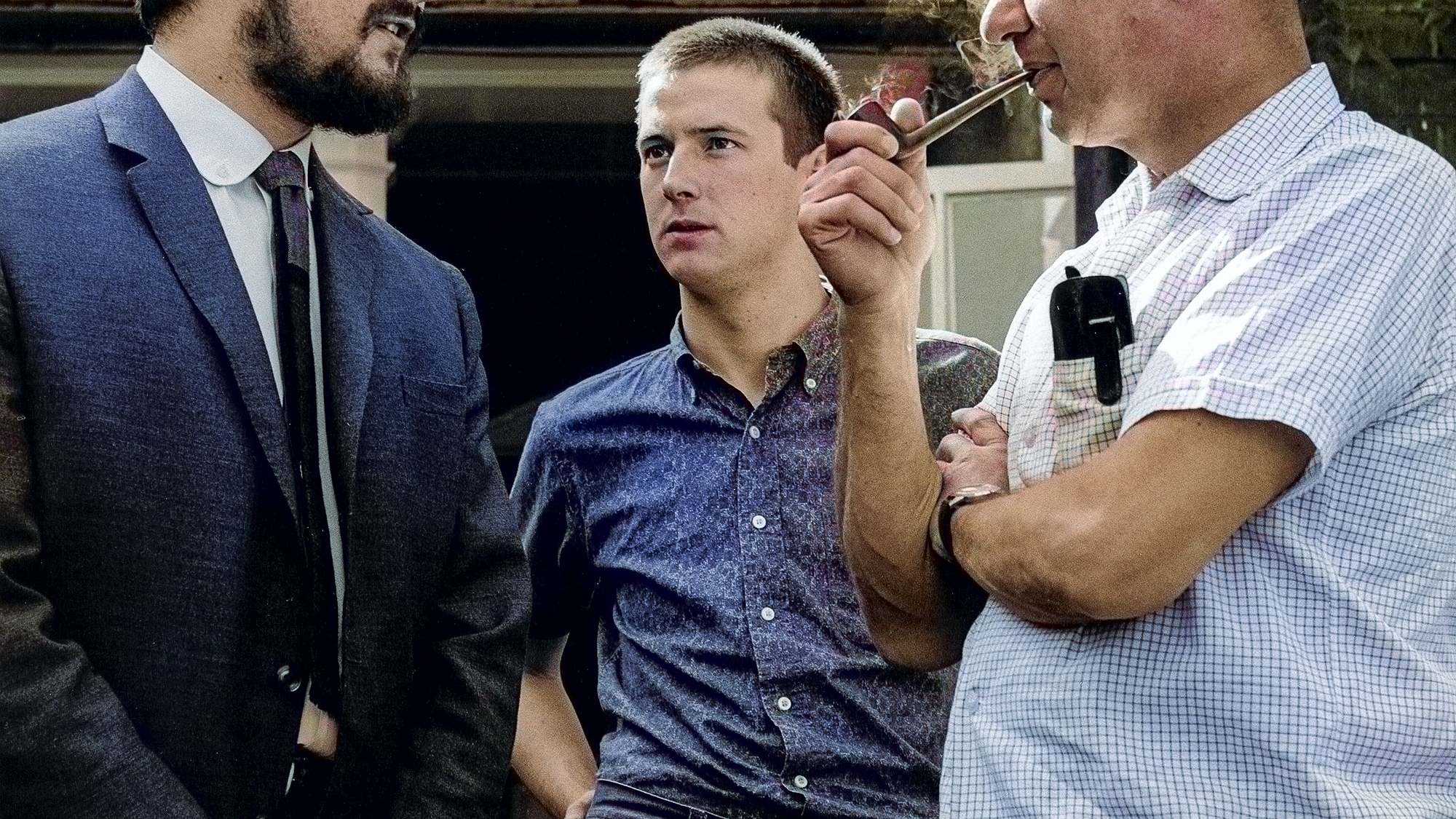10 Future Prog Legends: Meet the Players Leading Guitar Towards a New Frontier
Guitarists such as Yvette Young, Richard Henshall, Plini, and more are at the vanguard of creativity for progressive music.

All the latest guitar news, interviews, lessons, reviews, deals and more, direct to your inbox!
You are now subscribed
Your newsletter sign-up was successful
For more than five decades, prog rock has been the cradle from which guitar virtuosity has crawled forth.
Here, we take a look at 10 young guitarists who are leading the genre in the 2020s, and taking the guitar towards a new frontier.
Yvette Young
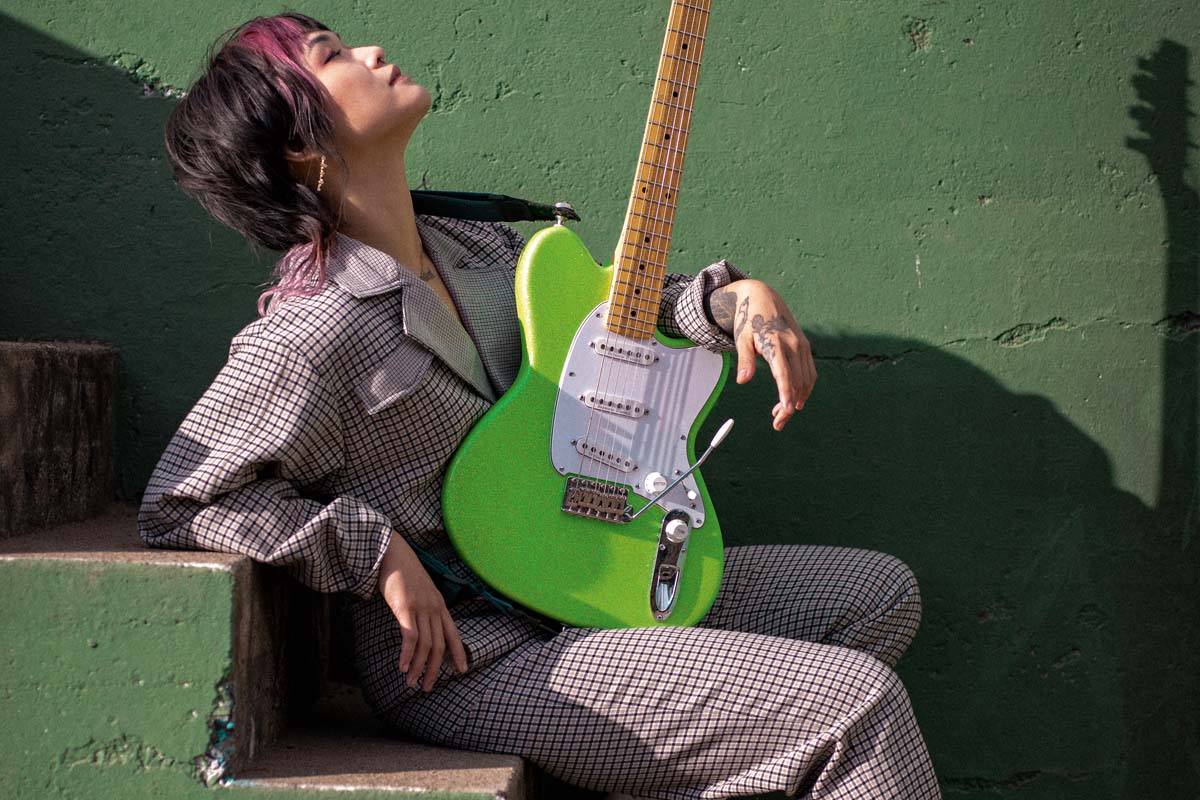
As the instrumental guitar maverick in Covet, Yvette Young takes a polyphonic, pianistic approach to her instrument. She employs alternate tunings, fingerpicking, two-handed tapping, and plenty of effects to put an ethereal and ambient spin on progressive playing.
How did you approach your guitar work on Covet’s new record, Technicolor?
I occupy this zone in the progressive “shred” guitar world, but I feel like a phony there because I’ve been chasing melodies my whole life. So for this record, I wanted to focus on conveying emotions and telling stories with melodies.
It’s definitely a more “wet” record, meaning that I’m using more effects on it. I’m toeing the line between being in this weird post-rock/shoegaze world and having one foot in the prog world, because of the odd-time meter stuff and the intricacy of the playing.
You’ve talked about taking a pianistic approach to the guitar, and indeed, you often play with two hands on the fretboard, much like you would lay your fingers on the keys of a piano.
All the latest guitar news, interviews, lessons, reviews, deals and more, direct to your inbox!
I grew up playing piano and violin, so a lot of the way I think about melody is still polyphonic. On piano, you know, you’re splitting up a melody between two hands. Your left hand is often implying root notes, and your right hand has what would be considered more of a lead guitar role, playing more of the main melody.
I think about it the same way on guitar. And I tap because it feels like how I would do runs on a piano.
Another big component of your style is your use of alternate tunings and open strings. How does that help you express yourself on the instrument?
What I really enjoy about alternate tunings is, yes, they make certain shapes more accessible. But I also feel like I’m never writing with shapes or theory in mind, because you can’t really memorize chord shapes when you’re constantly changing your tunings around.
So I sing all of my parts first with my voice and then I find them in the alternate tunings. I call it “chasing melodies.” There’s no way to get comfortable, and I like that.
Has this approach – two hands on the fretboard, alternate tunings, ringing open strings – influenced your guitar tone?
Yes. Overdrive doesn’t sound good if you’re playing in this way. You can’t get a lot of detail. And so most of the guitar stuff on the new record is clean. Although I think on the next record there’s going to be a lot of fuzz and gain, with more space between the notes.
Who are some of your guitar heroes?
I didn’t really listen to a lot of guitar music when I was younger. And I would say that I still don’t listen to guitar-centric music. I’ve always admired great songwriters, and some of those songwriters happened to be great guitarists as well.
Mike Kinsella, who plays with American Football and a lot of other projects, has some very intricate, detailed, beautiful guitar. And I listen to a lot of folk, like Cat Stevens and Sufjan Stevens. But I’ve always been more interested in songwriting rather than shredding.
Anyone that pushes songwriting boundaries can be considered progressive
What does progressive music mean to you?
It’s about experimenting and not following a traditional formula. A lot of people think progressive rock is a band like Dream Theater writing these huge, epic shred sagas. And that is quite progressive.
But then I think of a band like Mew, who take traditional pop structures and put some really weird experimental noises in them, and do crazy key changes and play in odd meters. That’s progressive, too. Anyone that pushes songwriting boundaries can be considered progressive.
Tom Monda (Thank You Scientist)
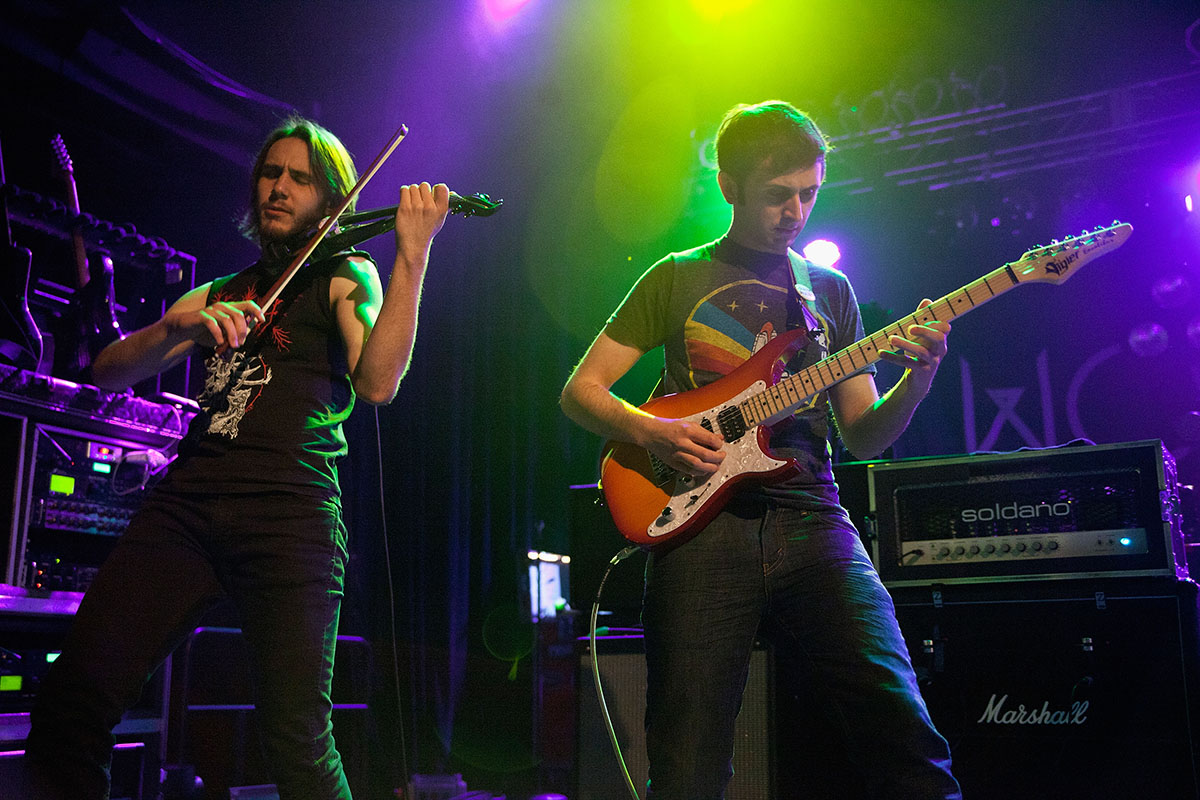
What does prog mean to you?
I always thought prog was more of an ethos than a genre. I think of it as an umbrella term for artists who are willing to do weird and/or exciting things.
Who are your guitar heroes?
Too many to list, but a few that come to mind: Lenny Breau, Allan Holdsworth, Bill Frisell, Ed Bickert, Scott Henderson, Charlie Hunter, Ralph Towner.
What are your favorite pieces of gear?
My Vigier Surfreter fretless.
What do you try to achieve to make your style and sound unique?
Just getting out of my own way and trying to play as honestly as I can.
What song in your catalog best exemplifies your approach to the guitar?
The song “Terraformer” off of the new Thank You Scientist album of the same name. It’s performed entirely on the fretless guitar and uses some unique extended techniques involving harmonics.
Cameron Maynard & Robby Baca (The Contortionist)
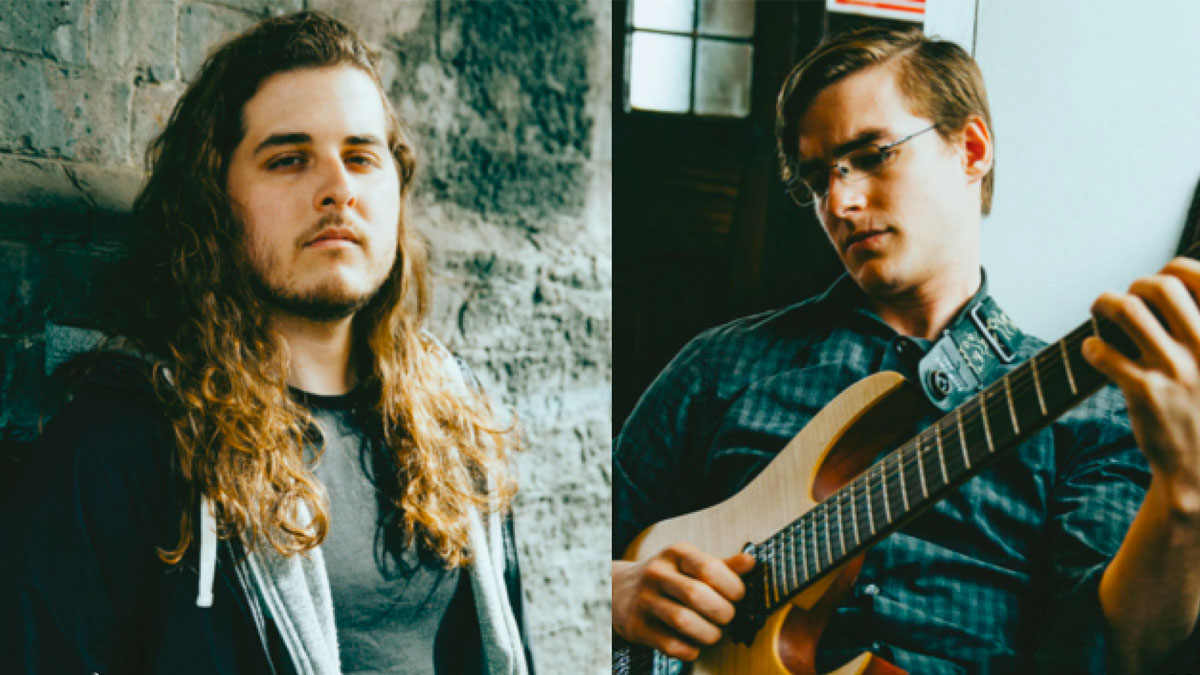
What does the word prog mean to you?
Cameron Maynard: My dad and all of the old records from the ’60s and ’70s that he introduced me to over my earlier years.
Robby Baca: Musical exploration. It tests the boundaries of what has come before it. It can be re-inventive or nostalgic, or both simultaneously.
Who are your guitar heroes?
Maynard: My ears have always gravitated toward Alex Lifeson. A ton of his guitar tones were so innovative. I find myself using them as a barometer for achieving similar tones when I’m in the studio.
Baca: Pat Metheny for his phrasing and fingerstyle playing. Dan Weller of SiKth for his exploratory and laser-precise riffs. Neal Morse of Spock’s Beard. I had lost interest in prog music until I was introduced to Neal.
What are your favorite pieces of gear?
Maynard: My Maxon PAC-9 analog chorus. I’ve not been able to find something that works as well as that unit in the digital realm.
Baca: Ibanez built me a custom ash-bodied RG with a sandblast finish and a roasted bird’s-eye maple neck. Mojotone supplied the pickups, and Hipshot provided the piezo bridge.
What song in your catalog best exemplifies your approach to the guitar?
Maynard: “Absolve.” It showcases a wide range of guitar techniques and tones, from super-clean fingerpicking and picked clean parts to octave fuzz and boosted guitar solos.
Baca: The title track from our last full length, Clairvoyant, kind of checks all the boxes. Some riffing, some lead action, some chording, and a touch of chaos.
What does prog contribute to the world of guitar playing?
Maynard: Prog is like a scientific journal. New music coming out is always fresh and new, whether it’s tested and true, or not.
Baca: Prog has taken a front seat in the evolution of what a guitar is. We’ve seen countless new ways to design a guitar ergonomically, electronically, and aesthetically.
Where do you hope to see progressive music heading in the future?
Maynard: I hope to see more openness and less elitism. Prog is not an elite genre sitting on top of others; it’s in the middle of the spectrum, taking inspiration from everything around it.
Baca: I hope to see future proggers continue to dream up the next iterations of prog. It’s an almost endless journey for this genre, and I’m excited to see where it goes.
Richard Henshall (Haken)
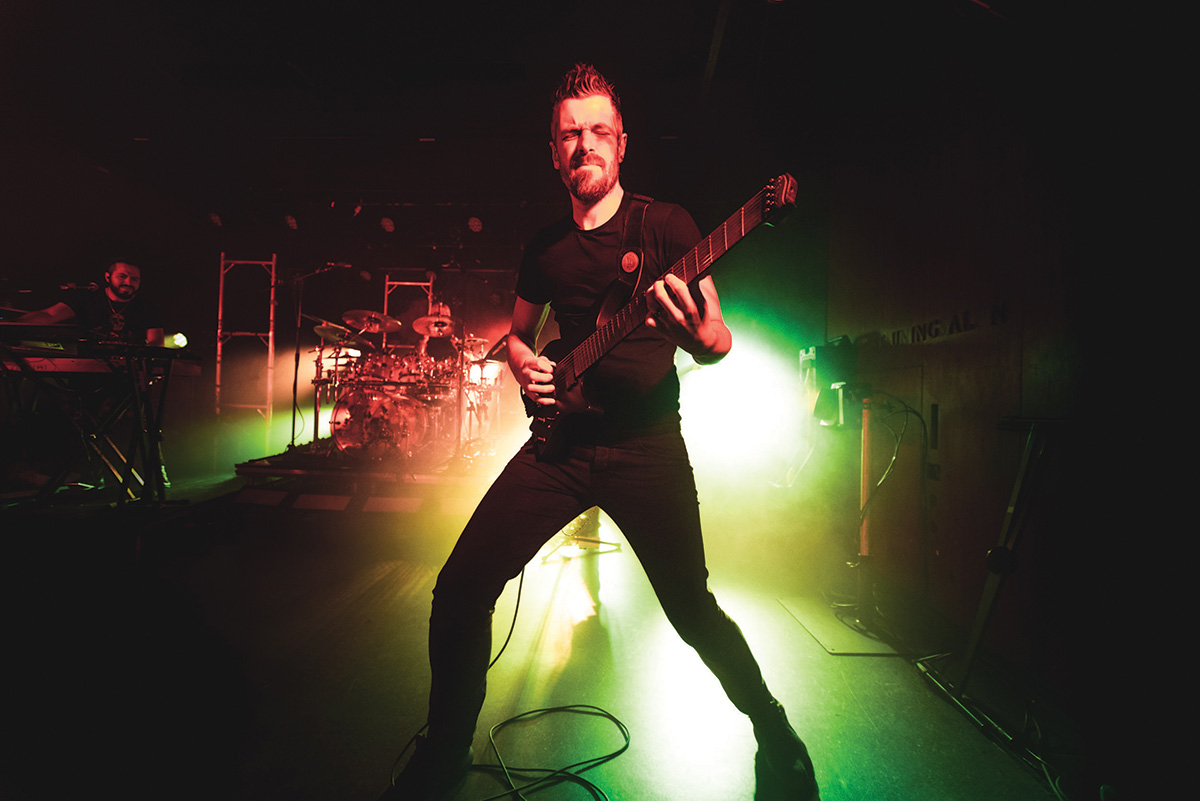
What does prog mean to you?
Prog has branched off into such a vast array of subgenres that it’s almost impossible to pinpoint what it is. It’s this fluid, constantly moving nature of the music. I would say prog is less of a genre and more of an approach to writing music.
Who are your guitar heroes?
Jonny Greenwood from Radiohead. As an aspiring guitarist, I was particularly drawn to his atypical approach to guitar, and to this day I still reference his playing and tones when I’m looking for something a little outside of the box. Guthrie Govan too. He seems to have an unrivaled grasp on pretty much every technique on the guitar.
What are your favorite pieces of gear?
I’ve been using a bunch of the Neural DSP amp sims recently. They really have their finger on the pulse when it comes to creating the most satisfying guitar tones I’ve ever heard. Also the Maxon OD-8 pedal.
What do you try to achieve to make your style and sound unique?
I started my musical journey on the piano when I was around six. I decided to teach myself and initially gravitated toward playing more piano-like ideas, which helped form the core of my sound on the guitar.
My style has evolved a fair amount since then, which is largely down to the variety of music I’ve listened to over the years. One of my favorite bands is Gentle Giant, and what I love about them is their focus on syncopation.
They have an ability to weave fairly simple ideas into a complex web of music, which is definitely something I strive toward with my playing and writing. I think it’s important that my guitar parts have their place within the overall mix and never become too overbearing. I’m a strong believer that the whole is almost always greater than the sum of its parts.
What song in your catalog best exemplifies your approach to the guitar?
“Messiah Complex” from our latest album, Virus. It pretty much covers the full scope of our sound and contains some pretty awkward, finger-twisting guitar parts.
What does prog contribute to the world of guitar playing?
It’s given us the likes of Robert Fripp and John Petrucci, and who knows where guitar playing would be without them. These guys, amongst a host of other players, have pushed the boundaries of what is possible on guitar and helped pave the way for generations of younger guitarists that followed them.
This new breed of superhuman guitarist is taking the world of prog, and guitar playing in general, to some exciting new places.
What does prog contribute that is unique?
I love the fact there doesn’t seem to be a rulebook that anyone follows. It’s this limitless nature of the genre that makes it unique.
Aaron Marshall (Intervals)
What does prog mean to you?
I think the term refers to an act or artist that is willing to try things and grow with each piece, or with their body of work. And while I do think it can apply to all styles of music, or art in general, I think the paradox comes from it always seeming to be tied to the world of rock and metal, making it the antithesis of its own implied concept.
Who are your guitar heroes?
Marco Sfogli, Andy Timmons, Guthrie Govan, Greg Howe. These are the guys that have had a significant and lasting impact on my playing and set the benchmark for me in the early days.
What are your favorite pieces of gear?
The Neural DSP Quad Cortex. If you’re familiar with their plug-ins, then the hardware is absolutely something you’re going to want to check out. And the Fractal Audio Axe-Fx is and will always be a game changer in the world of electric guitar.
What do you try to achieve to make your style and sound unique?
I tend to gravitate more toward a strong, infectious melodic hook or overall vibe, rather than prioritizing flash and technique. I’m always listening for the song to tell me where it wants to go.
What does prog contribute to the world of guitar playing?
I think prog’s strongest contribution to the guitar is the emphasis on quality composition – music that doesn’t feel like a backing track designed to show off a player’s chops but more so how they interact with their surroundings and the choices they make to lead inspired, musical compositions. I think that is modern prog’s greatest gift to the world of guitar playing.
Jason Richardson (Born of Osiris, Chelsea Grin, All That Remains)
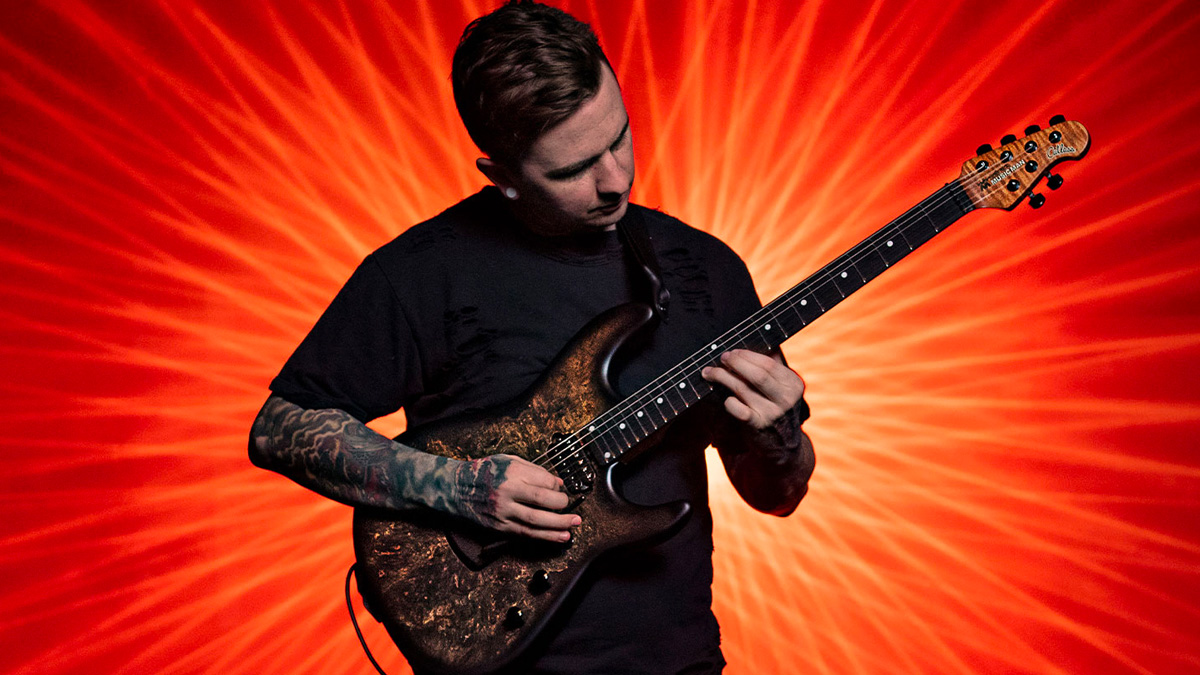
What does prog mean to you?
It’s just an abbreviation for progressive, meaning “forward thinking” – trying to bring something new to the table that hasn’t been done in your way before.
Who are your guitar heroes?
John Petrucci and Alexi Laiho. They both have had some of the biggest impact and influence on my playing and writing.
What are your favorite pieces of gear?
Probably my new Ernie Ball Music Man Signature seven-string Cutlass in Rorschach Red, and my Bricasti M7 reverb, which I use in my studio. It’s the best-sounding thing ever.
What do you try to achieve to make your style and sound unique?
I try to come up with unconventional lead parts and riffs, keeping in mind, How can I do this in a way that hasn’t been done before? A lot of epic ideas come from making guitar parts inspired by something I did in Pro Tools with programming, synths, or orchestration. I’ll come up with something bizarre, and it translates into something on guitar I never would have thought of.
What song best exemplifies your approach to the guitar?
“Tendinitis,” because it has every element in there that I just mentioned.
Where do you hope to see progressive music heading in the future?
Hopefully I’ll hear something that will make the hair on my arm raise. Even with my own music, if it doesn’t give me chills, it’s probably not good enough.
What does prog contribute to the world of guitar playing?
Prog pushes players to be more creative and original, and forces you outside of your comfort zone to try and incorporate different styles of music, hopefully in one song. I have a song called “Hos Down” that’s pretty bipolar in that regard. I’m taking it even a step further with the new music I’m writing.
Sacha Dunable (Intronaut, Dunable Guitars)
What does prog mean to you?
Exploring new territory for songwriting, melody/harmony, and rhythm, and often pushing the limits of the technicality of all those things.
What are your favorite pieces of gear?
Lately I’m obsessed with ’70s Marshall heads – 2203, 1959 etc. And obviously Dunable Guitars.
What song best exemplifies your approach to the guitar?
“Cubensis” by Intronaut. Lots of effects, some elements of traditional metal, but not a single moment of 4/4 or 6/8, and plenty of open space where I don’t even play.
What does prog contribute to the world of guitar playing?
Well, I guess a lot of contemporary guitar heroes have come out of what a lot of people consider to be prog. Tosin Abasi basically created a whole new way the guitar can be played, and there are tons of other people setting the bar pretty high as far as rock guitar playing goes.
Rabea Massaad (Toska)

What does prog mean to you?
It’s about progressing your understanding of music, whether it be in terms of the genre, technique, or composition. Progressive music doesn’t have to be genre specific; it can be any genres fused together.
Who are your guitar heroes?
Nuno Bettencourt, because he brought so much rhythm and imagination to his guitar parts, and in a band setting. But then also Joe Satriani, Dave Gilmour, and Guthrie Govan, and a lot of songs or solos from that era, when I was younger.
What are your favorite pieces of gear?
My guitars with my Bare Knuckle pickups, my pedalboard with the Strymon pedals and all my fuzzes/octaves, and the Victory Kraken amps. The new Quad Cortex from Neural DSP has changed my recording world.
What do you try to achieve to make your style and sound unique?
The main thing I try to do is pull emotions from my playing, whether it’s a chord progression, a lead line, or a riff. I also enjoy pushing myself technically as a player, but I just want to express whatever I hear in my head.
I’m sure like every other musician it’s always playing in your head, so I just try to get out whatever styles or sound I can think of.
What song best exemplifies your approach to the guitar?
“Prayermonger” from the last Toska record. It demonstrates a lot of what I like to communicate in progressive heavy music with regard to the vibe and emotions in the track.
Plini
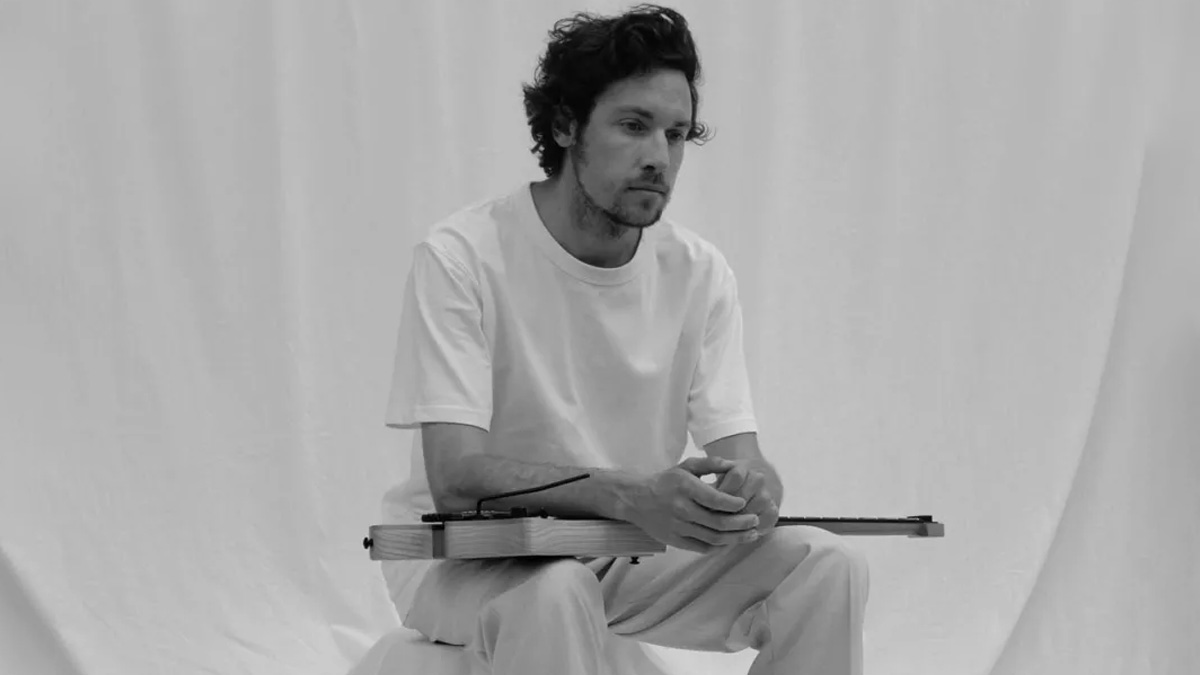
The Australian instrumental guitar virtuoso made a splash with his 2016 debut, Handmade Cities, and is now firmly established as one of the style’s leading voices.
You recently released Impulse Voices, the follow-up to Handmade Cities. Did you have a certain overarching concept in mind this time, or was it more a matter of compiling a collection of songs?
I think this one was actually more a collection of songs. I’ve done stuff in the past where I’ve tried to link themes – take a more “prog” approach. But with this new one, I just wanted to make an album that has all kinds of things happening in it across a whole bunch of different styles and sounds, as well as music that I’ve been enjoying.
And so I started putting together ideas of any type that just seemed interesting to me. Then I’d find certain synth sounds or guitar tones to bring it all together. It was very much a matter of throwing things at a canvas and then deciding if I was happy with them.
What was it that first drove you to pursue this sort of progressive, advanced-technique style of guitar playing?
I think it came from when I started trying to create songs. I’d get to a point in the song where, for it to sound cool to me, it needed to have a certain something in it, whether that was tapping or just playing fast. So then I had to figure out how to do those things. And that’s kind of been the only real driver behind whether I get any better at guitar.
Beyond technicality and speed, you bring a high degree of emotional content to what you’re playing. How do you balance these seemingly disparate elements?
I’ve noticed that most of my songs start out quite simple. And in that simple form, I think that’s where there is some emotion. That’s the point where it could have turned into a song with a vocalist. Then all the guitar complexity and weirdness gets layered on top of that original idea.
I’ve noticed that most of my songs start out quite simple. And in that simple form, I think that’s where there is some emotion
But I think you can still hear the emotion, because that’s where the song began. Whereas I think that if I started writing something just because it sounded cool or complicated and then tried to add emotion to that, it wouldn’t necessarily work.
Steve Vai once called you “the future of exceptional guitar playing.” It must be something to hear that from one of your biggest influences.
It’s pretty surreal. I think he wrote it on Facebook or something, and then, because he’s Steve Vai and pretty much everything he says is like pure gold, it got shared. So I woke up seeing it everywhere. I was like, This is my idol from when I was a kid and he’s saying this about me. This is insane.
But it’s really lovely motivation to keep doing what I’ve been doing, because if that’s the reaction that Steve Vai has to it, then I guess I could be on the right path.
Rich is the co-author of the best-selling Nöthin' But a Good Time: The Uncensored History of the '80s Hard Rock Explosion. He is also a recording and performing musician, and a former editor of Guitar World magazine and executive editor of Guitar Aficionado magazine. He has authored several additional books, among them Kurt Cobain: Montage of Heck, the companion to the documentary of the same name.
